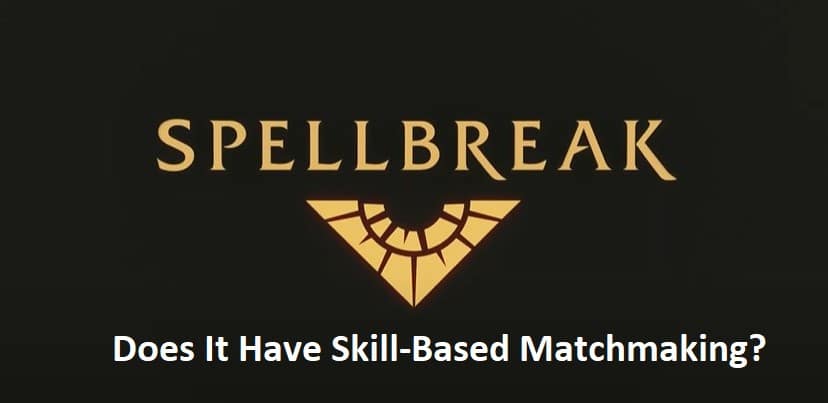
There are three different matchmaking systems in Spell Break, which means that there are three different ways to match people together in a game of Spell Break. The first and most frequently-used system is the skill-based matchmaking system, which puts you into matches where the average skills of all players on both teams are as close to equal as possible. Before diving into the details of this system, it’s helpful to understand the basics of how each player’s skill level is determined within Spell Break.
Does Spellbreak Have Skill-Based Matchmaking?
- Why Play Against Your Own Level?
Each player begins at the middle of the ladder. Your rating doesn’t change no matter how you play, but higher ratings mean tougher opponents. Playing against better players is the only way to improve. Losing games won’t drop your rank; you must beat high-rated players to catch up. Don’t worry if you’re not a pro and trapped in the minors. Keep trying, and your losses will turn into victories.
- Why Aren’t All Players in a Single Tier?
We offer a wide variety of matchmaking options for you to play with your friends, meet new people, and enjoy the competition. However, in order to have an even playing field we have created matchmaking queues that ensure players are grouped based on their skill level so they can compete together and enjoy themselves. The higher your skill rating (SR) is in comparison to other players in your queue, the more likely you will end up being matched with players of similar skill levels.
- What is Elo?
One of the oldest ranking systems in competitive gaming is Elo, which has its roots in chess. When you win a game, your points increase; likewise, when you lose a game, your points decrease. You get bonus points for beating players with a higher Elo score than yours, and those bonus points are multiplied by the difference between the two players’ Elo scores.
As time goes on, the system becomes more accurate at determining an individual player’s skill level based on their history. The system also matches players with similar skill levels together to ensure that games are as fair as possible.
- Who Makes up the Ratings Tiers, and Why Are They Changing Them?
It takes into account players’ match history, the performance of their team, the skill level of their opponents, and more. For example, if a player has performed well against high-tier opponents they will get matched up with similarly skilled players in that bracket.
If a player is winning or losing consistently, it becomes harder to predict how their matches will go, so for those players we do not consider them as highly ranked in their tier. The new ratings tiers are designed to be more accurate and reflect more accurately where you stand among other players on the ladder at any given time.
- Will my Tier Change after the Season Ends?
If you’re below your league’s skill tier, you’ll be relegated till next season. If you finish in the top half of your tier next season, you’ll be promoted to the preceding level. If you don’t meet the league’s talent criteria and are promoted, you may be relegated next season.
